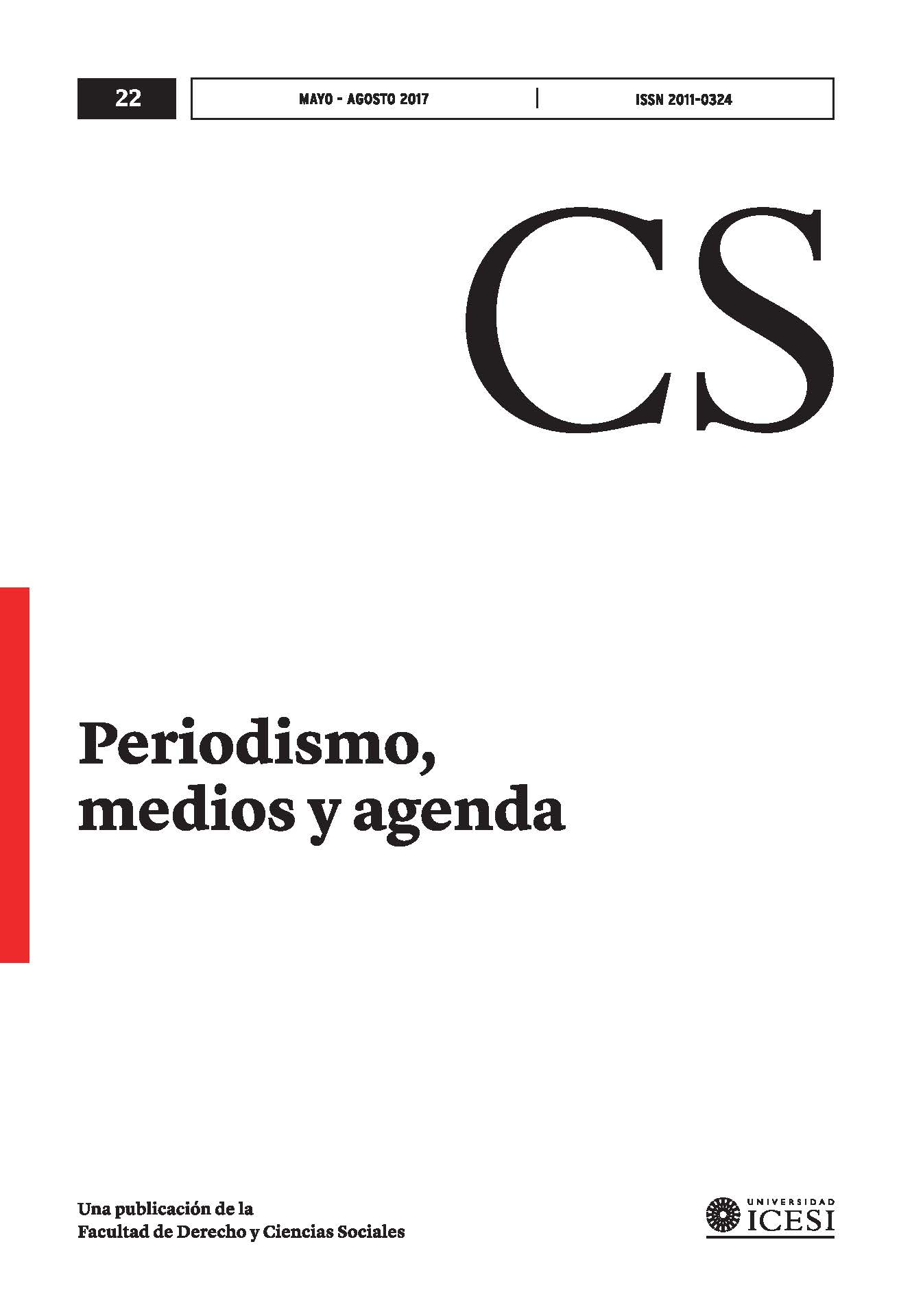Mutant and bastard journalism
DOI:
https://doi.org/10.18046/recs.i22.2394Keywords:
Journalism, Narrative, Dj, Mutant, BastardAbstract
The 20th century ended in 2016. Fidel Castro died in politics. And the journalism could not tell the reality. The great ruin of journalism is that it has stopped narrating democracy, making sense of our times, telling the realities of ordinary people, controlling power. Thus, the journalistic office is an endangered species in the mainstream media that have decided to become political actors that lobby for business interests and have turned information into sensationalism or show business. By doing so, we have reached a world where the value of journalistic information is low and media legitimacy and credibility is ruined. This essay argues that it is necessary and urgent to re-invent journalism and raise some glimpses of where to do it.Downloads
References
Baricco, A. (2008). Los bárbaros. Ensayos sobre la mutación. Barcelona: Anagrama.
Bourdieu, P. (1996). Sobre la televisión. Barcelona: Anagrama.
Caparrós, M. (2015). El hambre. Buenos Aires: Planeta.
Caparrós, M. (2016). Lacrónica. Buenos Aires: Planeta.
Caparrós, M. (11 de noviembre de 2016) El año en que chocamos con nosotros mismos. The New York Times (en español). Recuperado de: https://www.nytimes.com/es/2016/11/11/el-ano-en-que-chocamos-con-nosotros-mismos/
Coronel, D. (31 de enero de 2016). La sencilla tarea del reportero. Revista Semana . (1761), 17.
Duzán, M.J. (20 de febrero de 2016). El fin del periodismo. Semana. Recuperado de http://www.semana.com/opinion/articulo/maria-jimena-duzan-el-fin-del-periodismo/461264
“Le respondí con sarcasmo, como para quitármelo de encima”: Felipe Arias. (14 de junio de 2017) El Universal. Recuperado de http://www.eluniversal.com.co/farandula/felipe-arias-255429
Los periodistas hacen autocrítica en su día (febrero 9 de 2016). Lasillavacia.com. Recuperado: http://lasillavacia.com/historia/los-periodistas-hacen-autocritica-en-su-dia-53000
Martel, F. (2011). Cultura Mainstream, Cómo nacen los fenómenos de masas. Barcelona: Taurus.
Natason, J. (2014). La triple crisis del periodismo. Revista NUSO, Buenos Aires. 249, 50-60.
Rey Beltrán, G. y Martín-Barbero, J. (1997). El periodismo en Colombia: de los oficios a los medios. Signo y Pensamiento. Universidad Javeriana. XVI (30), 13-30.
Rincón, O. (ed.) (2008). Los telepresidentes: cerca del pueblo, lejos de la democracia. Bogotá: C3>FES.
Rincón, O. (2013). El periodista DJ es el medio. En Luchessi (coord.). Calidad Informativa. (pp. 9-31). Buenos Aires: La Crujia,
Rincón, O. (2014). Buenos periodistas, malos medios. Revista NUSO. 249, 87-107.
Rincón, O. y Rettberg, A. (eds), (2011). Medios, democracia y poder. Bogotá: Ediciones UniAndes.
Sampedro, V. (2015). El cuarto poder en red. por un periodismo (de código) libre. Madrid: Icaria.
Scolari, C. (2008). Hipermediaciones: elementos para una teoría de la comunicación digital interactiva. Barcelona: Gedisa.
Scolari, C. (2013). Narrativas transmedia. Barcelona: Deusto.
Sibilia, P. (2008). La intimidad como espectáculo. México: F. C. E.
Siegel, L. (13 de enero de 2017) In the story of Trump, there is no story. Columbia Journalism Review. recuperado: http://www.cjr.org/special_report/trump_story_narrative_press_conference.php
Tyndall, A. (12 de enero de 2017). Media's Lessons From Trump's Presser: Keep Questions Simple, Seek Specifics. Hollywood Reporter. Recuperado: http://www.hollywoodreporter.com/news/andrew-tyndall-medias-lessons-trumps-presser-keep-questions-simple-seek-specifics-963810
Downloads
Published
Issue
Section
License
Copyright (c) 2017 Omar G. Rincón

This work is licensed under a Creative Commons Attribution-NonCommercial 4.0 International License.
© Reserved Copyright
Material in this publication may be reproduced without authorization, provided the title, author and institutional source is acknowledged.
The content published in Revista CS is distributed under the Creative Commons BY-NC 4.0 Attribution/Recognition-NonCommercial 4.0 International license.
You are free to:
Share — copy and redistribute the material in any medium or format.
Adapt — remix, transform, and build upon the material.
Under the following terms:
Attribution — You must give appropriate credit , provide a link to the license, and indicate if changes were made . You may do so in any reasonable manner, but not in any way that suggests the licensor endorses you or your use.
NonCommercial — You may not use the material for commercial purposes.












